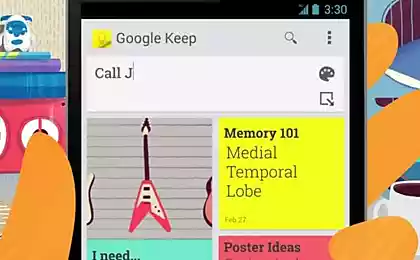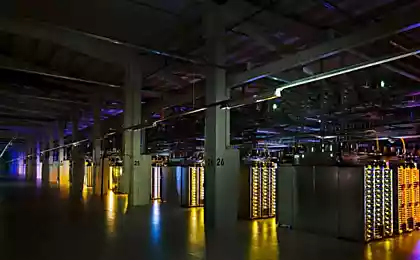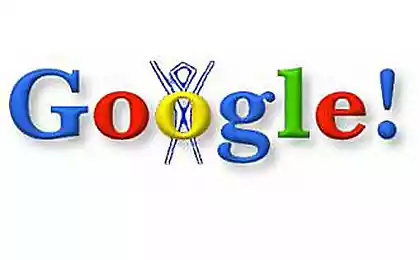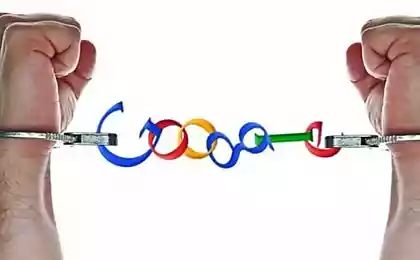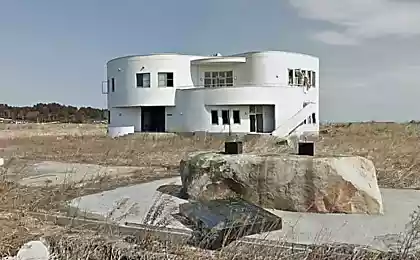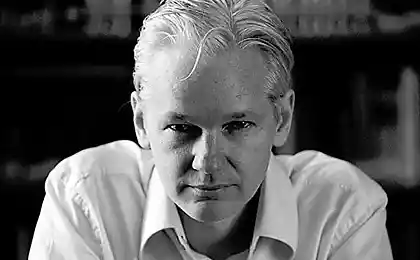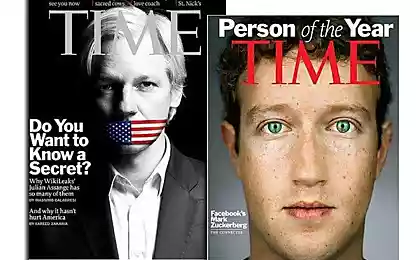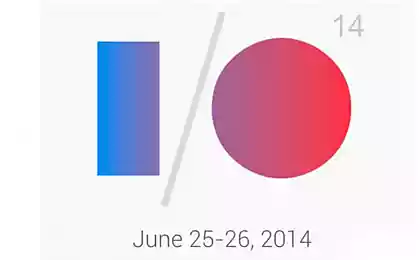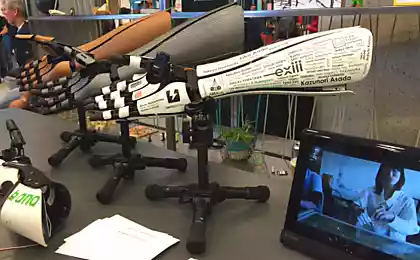653
Julian Assange: Google is not what it seems from the sandbox (part 3)
Tl;dr – Google Ideas seems to outrun the CIA, The Guardian shamelessly lazy, and the author will call the Department of state and report that they have a problem. This part came out slightly bigger and almost no pictures.
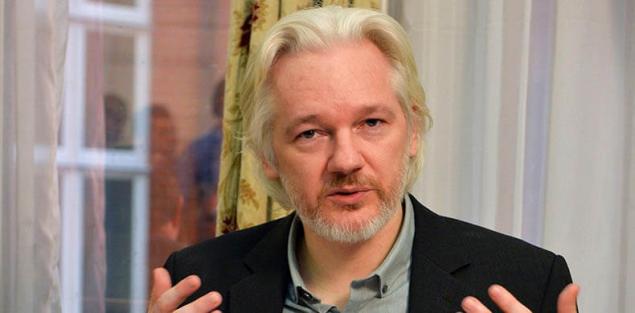
See also: Julian Assange: Google is not what it seems from the sandbox. Part 1
Julian Assange: Google is not what it seems from the sandbox. Part 2
Two months later, the publications of the diplomatic telegram State Department to WikiLeaks came to an abrupt end. Three quarters of the year we were in charge of their publishing, working with about a hundred global media partners, distributing documentation in their regions of influence, controlling the publishing system and editing around the world, fighting for maximum impact for our partners.
But as a result of gross negligence the Guardian newspaper – our former partner – had published the confidential decryption password to all 251 thousand telegram, published in the title one of the chapters of their books, hastily released in February 2011. [note. Probably talking about the biographical book "WIKILEAKS: Inside Julian Assange''s War on Secrecy", which was published by Guardian Books in 2011. In a footnote on one of these links, it is noted that it happened because of the confusion: the publishers felt that the password is temporary and changes from time to time, but it was not so].
In mid-August we discovered that our former German employee – whom I had suspended in 2010 – began to build ties with various individuals and organizations, Patagonia in their location encrypted files included with the workbook that contains the password. In terms of the spread of this information, we calculated that within two weeks most intelligence agencies, mercenaries and intermediaries will have access to the documents. And the public is not.
I decided that it was necessary to shift our release schedule and make all the earlier four months, and also to contact the state Department and make them advance warning. The situation was complicated by the fact that could result in a different law and a different political prosecution.
We were unable to establish contact with Sustanon Lois (Louis Belen coover), the then US Ambassador in Britain, so we decided to knock on the front door. Editor, research Department WikiLeaks Sarah Harrison (Sarah Harrison) called in the receiving Department and told the operator that "Julian Assange" I would like to talk with Hillari Clinton.
Predictable, initially, this statement was greeted with bureaucratic disbelief. Suddenly, we found ourselves in a situation in which Peter sellers in that scene of "Doctor Strangelove", where he tried to call the White house to warn of impending nuclear war, and he was left hanging on the phone waiting.
As in the film, we had to go on rising, each time talking with a parent of bureaucracy until we finally connected with the senior legal Advisor to Ms. Clinton. He told us he would call back. We hung up and waited.
When half an hour later the phone rang on the other end of the line was not the State Department. It was Joseph Farrell, the American employee of WikiLeaks who arranged our recent meeting with Google. He had just received an email from Lisa shields, with a request to confirm whether the state Department called WikiLeaks.
At this point I finally realized that Eric Schmidt isn't the only spy in Google. Officially or not, but he has a company [of people], which allows him to be close to Washington, meaning and well-documented relationship with President Obama.
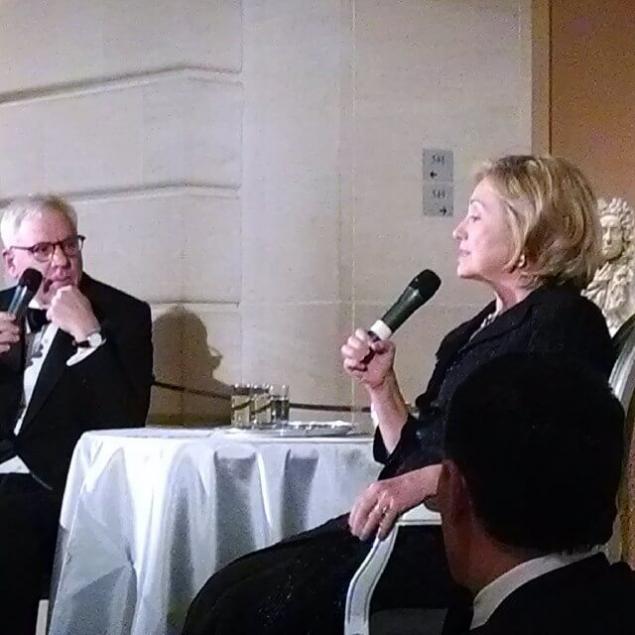
Hillary Clinton and David Rubenstein (David Rubinstein) participate in the commemorative event dedicated to Richard Holbrooke, December 5, 2013, photo from instagram by Eric Schmidt
People Hillary Clinton not only knew what shields, among other partners Eric Schmidt visited me, they chose her to use as a backup communication channel. At that time, as WikiLeaks had been deeply involved in publishing the internal archives of the US State Department, the U.S. Department of State snuck into the WikiLeaks command center and squeezed me free lunch.
Two years later, in 2013, when the visits to China, North Korea and Burma, Eric Schmidt became really valuable man as a "behind the scenes diplomat" of Washington. But at that time it was something new.
I came back to this in February 2012, when WikiLeaks – along with approximately thirty media partners – began publishing the Global Intelligence information (global intelligence): the internal correspondence of the Texas private intelligence Agency Stratfor.
One of our most robust analytic partners – the Beirut newspaper Al Akhbar – scoured the emails of intelligence on Jared Cohen. People from Stratfor, who considered themselves a kind of private CIA, with jealousy about the fact that someone wants to enter their sector of activity. On their radar appeared Google. In a series of colorful emails they discussed the structure of activities, arrayed by Cohen under the Google Ideas aegis, suggesting what it really is.
The office of the priest wanted to move from public relations and "corporate responsibility" for active corporate intervention in foreign Affairs, and at the level, which is usually acceptable for the state. Jared Cohen jokingly became known as "Director of regime change".
According to information from the letters, he tried to put his hands to all the major historical events on the contemporary middle East. He was in Egypt during the revolution, meeting with Wael Persecuted (Wael Ghonim), the Google employee whose arrest made him the hero of the media and a symbol of the uprising in the Western press, and who was caught several hours later after the meeting [reference from Wikipedia: Wael Ghonim is an Internet activist and computer engineer. From January 2010 — Director of marketing for Google middle East and North Africa. In 2011, became world famous as an activist of the revolution in Egypt].
Meetings were also planned in Turkey and Palestine, but both were abolished by the Google leadership as too dangerous. Just a few months before he met me, Cohen was planning a trip to the border of Azerbaijan and Iran to bring the Iranian community closer to the border, in the framework of the project Google Ideas about "repressive societies".
In one of the internal emails the Vice President of exploration of Stratfort, Fred Burton (Fred Burton, a former employee of the security service of the US state Department), wrote the following:
"Google gives the White house and support and air cover. In fact, they do things which is not capable and the CIA... [Cohen] ever be kidnapped or killed. It's probably the best that can happen to expose the hidden role of Google in shaping the uprisings. In this case, the us government will be able to pretend that he knows nothing, and Google will remain a bag of shit ("and Google is left holding the shit-bag").
Further internal correspondence indicates Burton as his informants about the activities of Cohen Leva Marty (Marty Lev) – the Director of Google on security and safety – and Eric Schmidt himself. Looking for something more specific, I began to raise the WikiLeaks archives, with information on Cohen.
In a diplomatic telegram, which we published, I was able to find that Cohen started in 2009, in Afghanistan, trying to convince the four largest local operators to move their antenna on us military bases. In Lebanon, he quietly worked to create the intellectual and spiritual rival Hezboly, "the Supreme Shiite Alliance" (the"Higher Shia League"). While in London he negotiated with the representatives of bollywood to insert anti-extremist content into their films, promising to establish for them a connection with Hollywood.
Three days later Jared Cohen visited me at Ellingham Hall [approx. farm in South Norfolk, UK]. He flew to Ireland to "SAVE" (Summit Against Violent Extremism, the Summit Against Violent Extremism), the event is co-sponsored by Google Ideas and the us Council on foreign relations. Gang members from poor areas, warriors of the right wing, militant nationalists and "religious extremists" – all these guys were gathered in one place at a workshop on technological solutions to the problem "violent extremism". What could go wrong?
Prodoljenii be published...
See also: Julian Assange: Google is not what it seems from the sandbox. Part 1
Julian Assange: Google is not what it seems from the sandbox. Part 2
P. S. And remember, only by changing their consumption — together we change the world! ©
Join us in Facebook , Vkontakte, Odnoklassniki
Source: megamozg.ru/post/24850/

See also: Julian Assange: Google is not what it seems from the sandbox. Part 1
Julian Assange: Google is not what it seems from the sandbox. Part 2
Two months later, the publications of the diplomatic telegram State Department to WikiLeaks came to an abrupt end. Three quarters of the year we were in charge of their publishing, working with about a hundred global media partners, distributing documentation in their regions of influence, controlling the publishing system and editing around the world, fighting for maximum impact for our partners.
But as a result of gross negligence the Guardian newspaper – our former partner – had published the confidential decryption password to all 251 thousand telegram, published in the title one of the chapters of their books, hastily released in February 2011. [note. Probably talking about the biographical book "WIKILEAKS: Inside Julian Assange''s War on Secrecy", which was published by Guardian Books in 2011. In a footnote on one of these links, it is noted that it happened because of the confusion: the publishers felt that the password is temporary and changes from time to time, but it was not so].
In mid-August we discovered that our former German employee – whom I had suspended in 2010 – began to build ties with various individuals and organizations, Patagonia in their location encrypted files included with the workbook that contains the password. In terms of the spread of this information, we calculated that within two weeks most intelligence agencies, mercenaries and intermediaries will have access to the documents. And the public is not.
I decided that it was necessary to shift our release schedule and make all the earlier four months, and also to contact the state Department and make them advance warning. The situation was complicated by the fact that could result in a different law and a different political prosecution.
We were unable to establish contact with Sustanon Lois (Louis Belen coover), the then US Ambassador in Britain, so we decided to knock on the front door. Editor, research Department WikiLeaks Sarah Harrison (Sarah Harrison) called in the receiving Department and told the operator that "Julian Assange" I would like to talk with Hillari Clinton.
Predictable, initially, this statement was greeted with bureaucratic disbelief. Suddenly, we found ourselves in a situation in which Peter sellers in that scene of "Doctor Strangelove", where he tried to call the White house to warn of impending nuclear war, and he was left hanging on the phone waiting.
As in the film, we had to go on rising, each time talking with a parent of bureaucracy until we finally connected with the senior legal Advisor to Ms. Clinton. He told us he would call back. We hung up and waited.
When half an hour later the phone rang on the other end of the line was not the State Department. It was Joseph Farrell, the American employee of WikiLeaks who arranged our recent meeting with Google. He had just received an email from Lisa shields, with a request to confirm whether the state Department called WikiLeaks.
At this point I finally realized that Eric Schmidt isn't the only spy in Google. Officially or not, but he has a company [of people], which allows him to be close to Washington, meaning and well-documented relationship with President Obama.

Hillary Clinton and David Rubenstein (David Rubinstein) participate in the commemorative event dedicated to Richard Holbrooke, December 5, 2013, photo from instagram by Eric Schmidt
People Hillary Clinton not only knew what shields, among other partners Eric Schmidt visited me, they chose her to use as a backup communication channel. At that time, as WikiLeaks had been deeply involved in publishing the internal archives of the US State Department, the U.S. Department of State snuck into the WikiLeaks command center and squeezed me free lunch.
Two years later, in 2013, when the visits to China, North Korea and Burma, Eric Schmidt became really valuable man as a "behind the scenes diplomat" of Washington. But at that time it was something new.
I came back to this in February 2012, when WikiLeaks – along with approximately thirty media partners – began publishing the Global Intelligence information (global intelligence): the internal correspondence of the Texas private intelligence Agency Stratfor.
One of our most robust analytic partners – the Beirut newspaper Al Akhbar – scoured the emails of intelligence on Jared Cohen. People from Stratfor, who considered themselves a kind of private CIA, with jealousy about the fact that someone wants to enter their sector of activity. On their radar appeared Google. In a series of colorful emails they discussed the structure of activities, arrayed by Cohen under the Google Ideas aegis, suggesting what it really is.
The office of the priest wanted to move from public relations and "corporate responsibility" for active corporate intervention in foreign Affairs, and at the level, which is usually acceptable for the state. Jared Cohen jokingly became known as "Director of regime change".
According to information from the letters, he tried to put his hands to all the major historical events on the contemporary middle East. He was in Egypt during the revolution, meeting with Wael Persecuted (Wael Ghonim), the Google employee whose arrest made him the hero of the media and a symbol of the uprising in the Western press, and who was caught several hours later after the meeting [reference from Wikipedia: Wael Ghonim is an Internet activist and computer engineer. From January 2010 — Director of marketing for Google middle East and North Africa. In 2011, became world famous as an activist of the revolution in Egypt].
Meetings were also planned in Turkey and Palestine, but both were abolished by the Google leadership as too dangerous. Just a few months before he met me, Cohen was planning a trip to the border of Azerbaijan and Iran to bring the Iranian community closer to the border, in the framework of the project Google Ideas about "repressive societies".
In one of the internal emails the Vice President of exploration of Stratfort, Fred Burton (Fred Burton, a former employee of the security service of the US state Department), wrote the following:
"Google gives the White house and support and air cover. In fact, they do things which is not capable and the CIA... [Cohen] ever be kidnapped or killed. It's probably the best that can happen to expose the hidden role of Google in shaping the uprisings. In this case, the us government will be able to pretend that he knows nothing, and Google will remain a bag of shit ("and Google is left holding the shit-bag").
Further internal correspondence indicates Burton as his informants about the activities of Cohen Leva Marty (Marty Lev) – the Director of Google on security and safety – and Eric Schmidt himself. Looking for something more specific, I began to raise the WikiLeaks archives, with information on Cohen.
In a diplomatic telegram, which we published, I was able to find that Cohen started in 2009, in Afghanistan, trying to convince the four largest local operators to move their antenna on us military bases. In Lebanon, he quietly worked to create the intellectual and spiritual rival Hezboly, "the Supreme Shiite Alliance" (the"Higher Shia League"). While in London he negotiated with the representatives of bollywood to insert anti-extremist content into their films, promising to establish for them a connection with Hollywood.
Three days later Jared Cohen visited me at Ellingham Hall [approx. farm in South Norfolk, UK]. He flew to Ireland to "SAVE" (Summit Against Violent Extremism, the Summit Against Violent Extremism), the event is co-sponsored by Google Ideas and the us Council on foreign relations. Gang members from poor areas, warriors of the right wing, militant nationalists and "religious extremists" – all these guys were gathered in one place at a workshop on technological solutions to the problem "violent extremism". What could go wrong?
Prodoljenii be published...
See also: Julian Assange: Google is not what it seems from the sandbox. Part 1
Julian Assange: Google is not what it seems from the sandbox. Part 2
P. S. And remember, only by changing their consumption — together we change the world! ©
Join us in Facebook , Vkontakte, Odnoklassniki
Source: megamozg.ru/post/24850/
Serbian graduates instead of buying outfits gave the money to sick children and celebrated in t-shirts
Summer house: compact size, functionality, practicality



